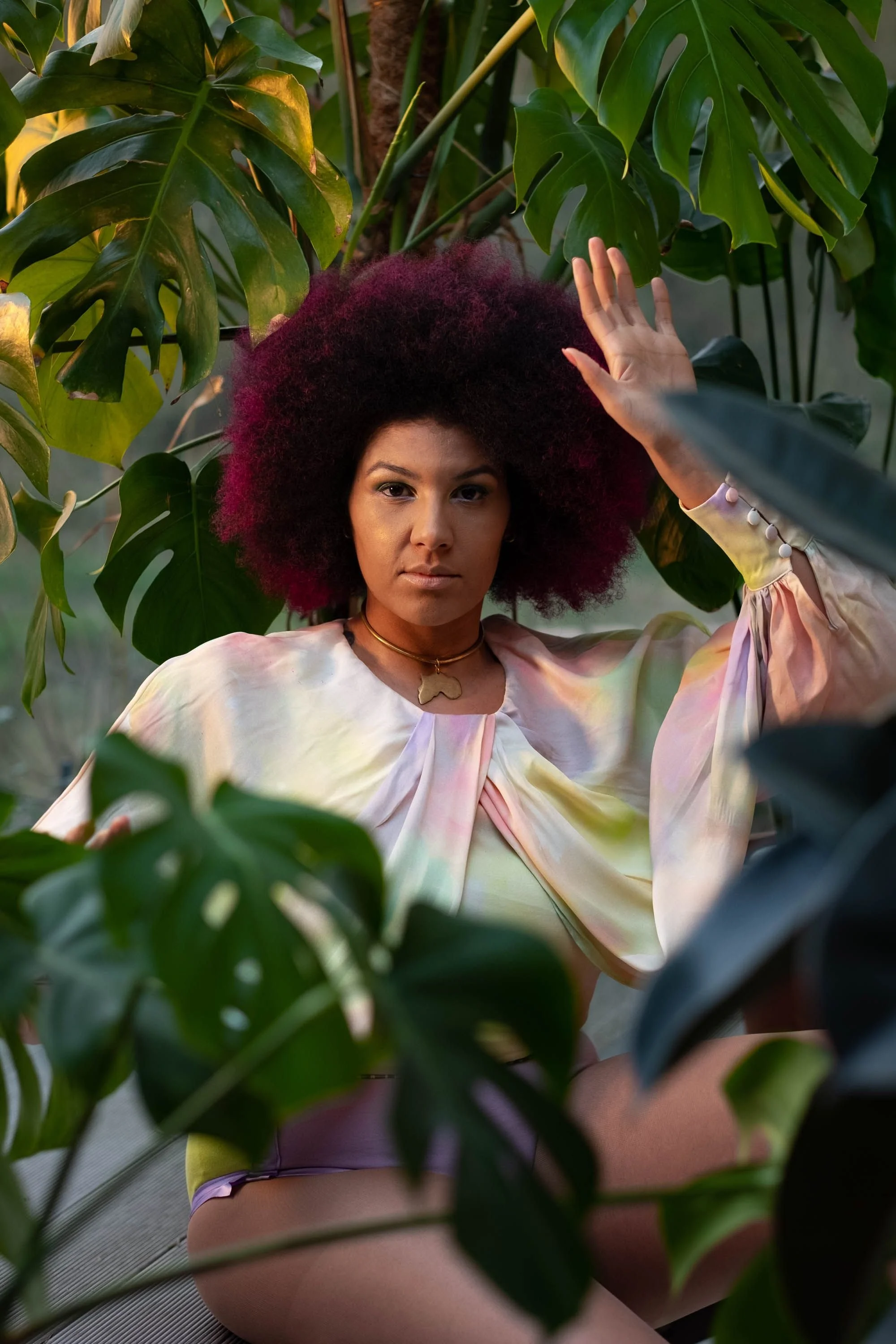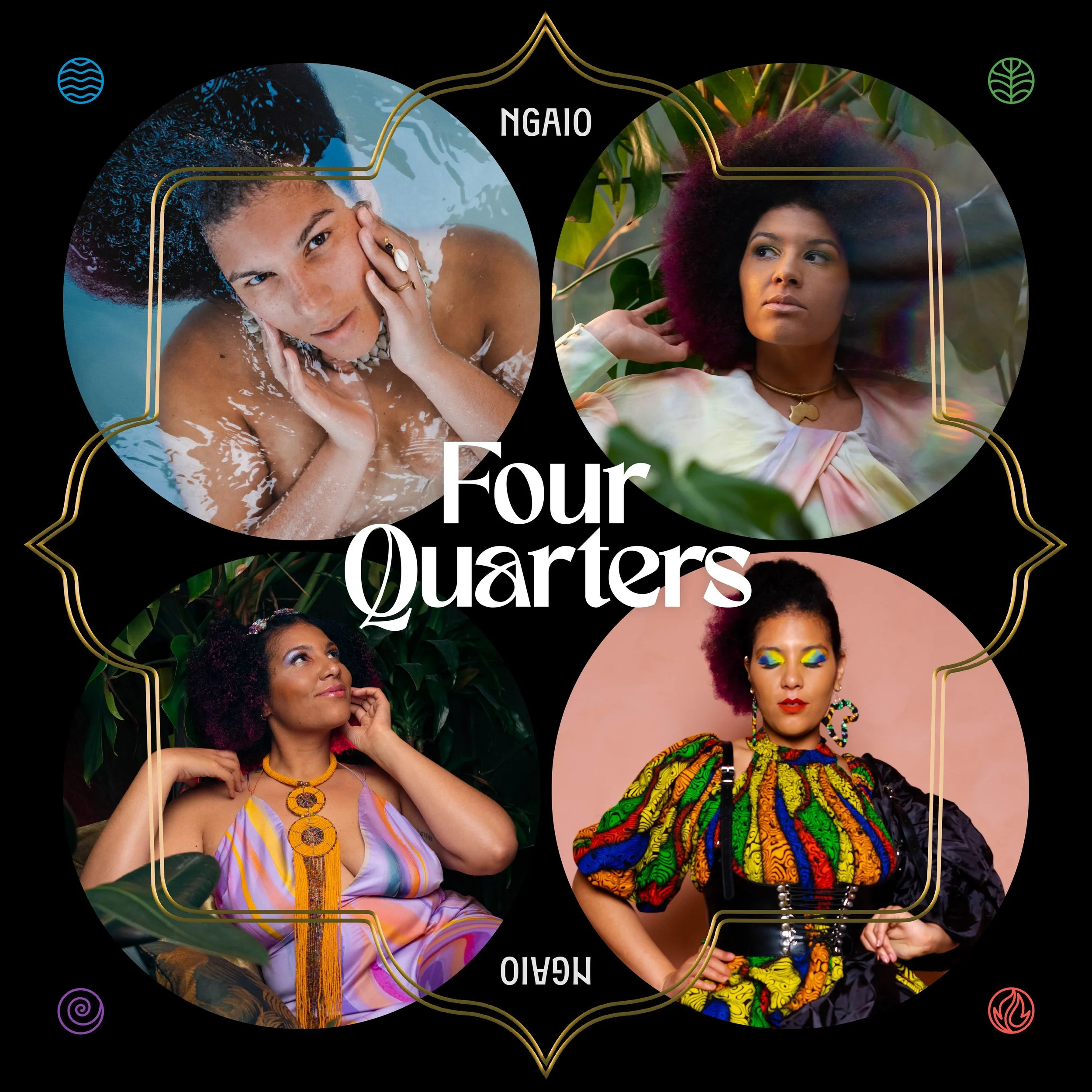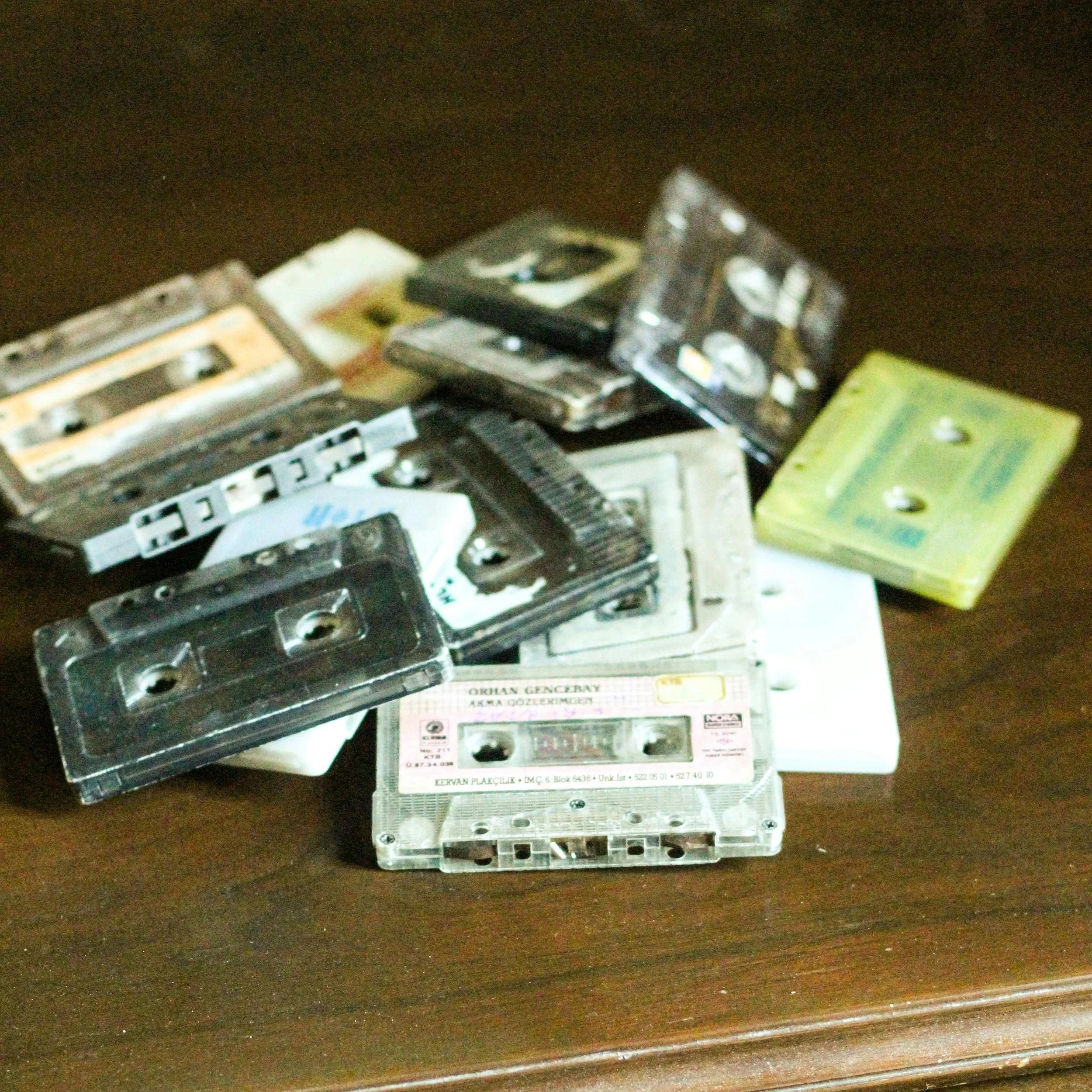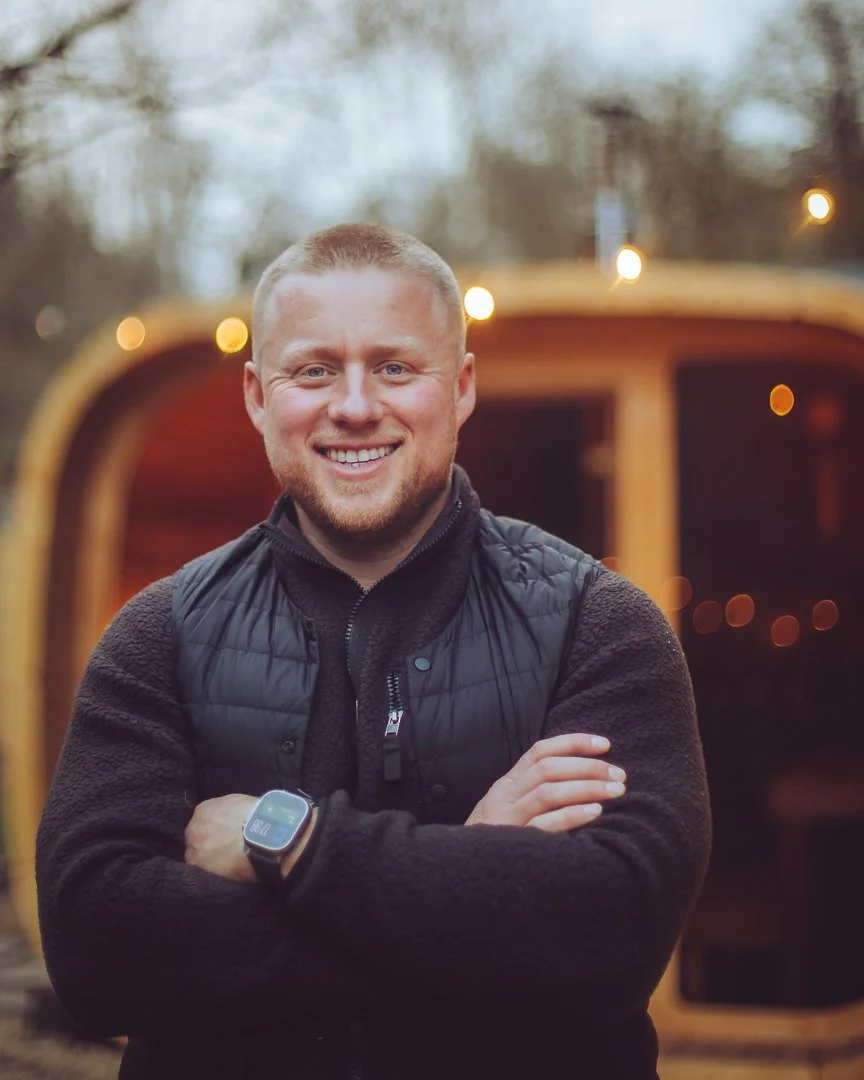Talking to: Ngaio
Ngaio may be based in Bristol but her music certainly shows she will not be pinned down. Her soulful vocals combined with jazz influences - all underpinned by African beats - create a sound all of its own. But it’s not just her music that’s eclectic, her career itself is eclectic too. Not only a recording artist, she is a spoken word artist, activist, DJ and founder of Booty Bass, a Black-led female/non-binary DJ crew.
Following the release of her latest EP Four Quarters, self-produced and released 6 June of this year, Ngaio shares her musical upbringing and influences, why empowering music is so important, and what the future holds.
Different genres and artists filled every corner of Ngaio’s childhood home, so it’s zero surprise she was inspired to be a musician herself. ‘I'd be hearing Mozart, Bob Marley, Fela Kuti, Ella Fitzgerald…this mish-mash of artists from all these different genres; and I think that really laid the foundation for me musically’. As she got older, her musical horizons broadened even further, starting off with a real adoration for old female jazz singers such as Billie Holiday which influenced her early forays into music as a jazz singer. Then, another style stepped in: ‘I started going out partying and discovered dubstep! I was there at the beginning of dubstep in Bristol. And I was like “What is this music?” Dubstep took it into that stepper music and mixed it with the electronic, and I found it just so exciting.’
Growing up with such a mix of music genres gave her the creative freedom to explore and push boundaries with her own sound; ‘There's so much space within music to experiment and to bring different audiences and voices together. So I think when it came to making my own music, I was like “How can I bring all these influences together in a way that feels symbiotic and authentic?”.
Now, let’s talk about her music. In June, Ngaio released a long-awaited self-produced EP, Four Quarters, that had been two years in the making. It’s special to her for lots of reasons, but producing it herself was something she’s especially proud of. When lockdown hit, the realisation also hit that she wasn’t able to make music on her own ‘When it came to production, it felt completely beyond me. So I decided then that I was going to learn how to do it - I wanted to be more self-reliant.’
With production knowledge came musical flexibility and after receiving funding from Help Musicians, she was able to craft a new creative process. ‘When it’s your own production [...] you have to have so much confidence in it, you have to have so much confidence in yourself!’ That confidence shines throughout Four Quarters, along with its intention to make the listener feel truly empowered, ‘I wanted every single one of the tracks to be something that you could put on when you're not feeling great and, once it’s finished, you come out of it feeling better about yourself.‘
The single Goddess - released at the same time as the EP - is a pitch-perfect example of this. Filled with soulful affirmations that all of us are goddesses, it’s the track you’d reach for when you want a musical arm around your shoulder. It’s a firm pushback at the way society has taught us to criticise ourselves, and Ngaio’s chance to say ‘I don't care if you're he, she or they, I don't care who you are, we are all goddesses and this toxic, masculine, patriarchal system that we're in, is hurting everybody […] and can we all just look at our similarities before we start bitching about the differences.’ It’s self-love and empowerment bottled up in 3 minutes 57 seconds.
Not only does Ngaio bring pure positivity through her music as a singer-songwriter, she well and truly delivers it with Booty Bass too. Self-described as a Black-led female/non-binary DJ crew shaking up dancefloors with diaspora-inspired tunes, it creates a safe, inclusive and beautifully raucous space for female and non-binary DJ’s to do what they do best. Ngaio started Booty Bass when she clocked early on in her DJ days that she was in the minority and it was an uncomfortable place to be ‘I had loads of wonderful male friends in the industry, but I realised that I was often the only woman there. And often the only woman of colour, and often the only Queer woman of colour.’ Noticing the audience’s response to her as a female DJ reiterated the need for something different; ‘I realised all the women would start coming to the front [when I DJ’d] and I realised there's a real sense of safety here’.
And so Booty Bass was born and it’s been going from strength to strength, audiences keep returning because, Ngaio says, they know what they’re going to get, which is a sense of understanding, safety and joy, and it’s been great for her to watch; ‘It's been such a joy to see that community grow and be able to take up space in different ways.’ Earlier this summer Booty Bass took up space at Glastonbury for the fifth time, but this time it was a little different. This time they played the Nowhere stage and it had the full works; screens, lasers, and branding; ‘It felt big, it felt different. I think probably, because having that extra element of having the screens there and just looking out into the crowd, not being able to see where the crowd ended [...] it felt like [Glastonbury had said] “we trust you with this stage”[…] It was such a lovely feeling to grow in that space’.
Looking at her journey as both a singer-songwriter and as a DJ, growth, it seems, is integral to Ngaio. So what about the future? How - and in what direction - will her music grow? ‘I've been working on this really exciting project, which is going to be at the Science Gallery in November; it is a Shanghai-Bristol collaboration […] and it is more of a sound design project which is just really exciting.’ This has been an interesting change, ‘It's really not about me in any way, it's about responding, in a creative way, to a story and to other creatives. And that's been incredible, such a beautiful project to be part of.’
She has other projects closer to home in the works too, the main one of which is creating dance versions of her own tracks; ‘It's about looking at how I can adapt them to work in a different space.’ She experimented with remixing during her live shows performing the Four Quarters EP, by building out loops in her tracks when they hit a beat change. It was an exciting moment, ‘I was doing it as a live mixing musician and that was so exciting, it just gave me a whole new vision of how I could be creating music, playing music and playing my own music’. It’s alchemy and she’s loving it; ‘It feels great, because it’s a whole new way of taking people on a sonic journey and integrating all of the tracks I've been building on and giving them a new lease of life […] I’m just having loads of fun with it!’
Fun she has and so do her fans, whether that’s listening to her music or at her Booty Bass nights. But, although a mix of genres and styles have made an enormous impact on Ngaio’s music, trying to attach a genre to her sound is perhaps missing the point. Ngaio isn’t one to be pigeonholed, just as she doesn’t want her listeners to feel pigeonholed either. Her music is all about encouraging self-respect and empowerment, whoever you are. ‘I hope if someone found my music not knowing what it was, that by the time it finished, they’d leave feeling connected to themselves in a different way.’
Opinion







